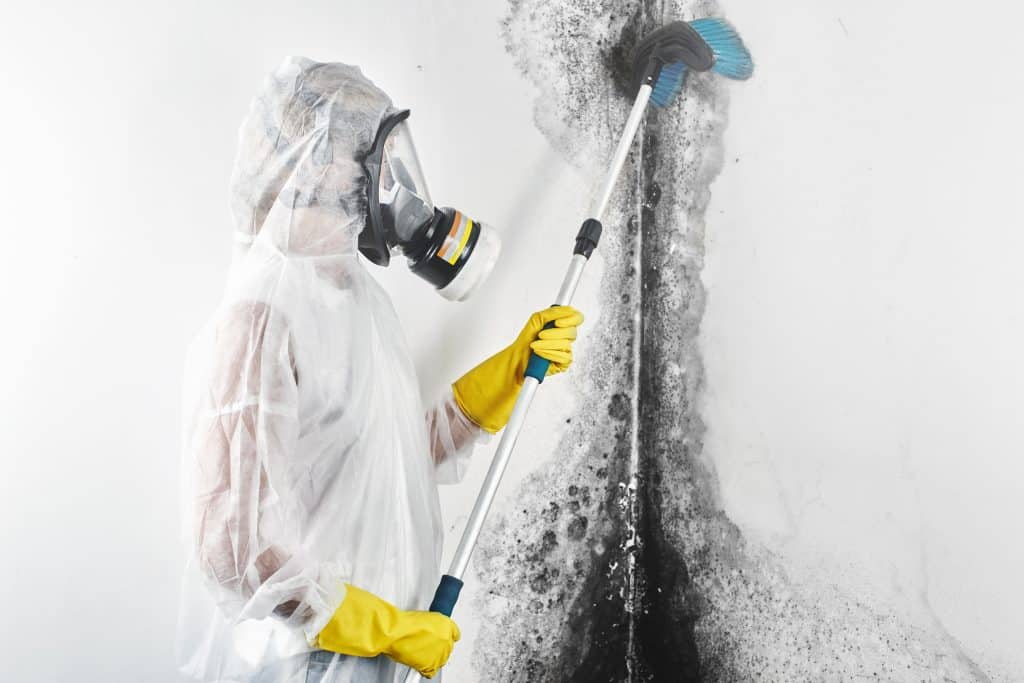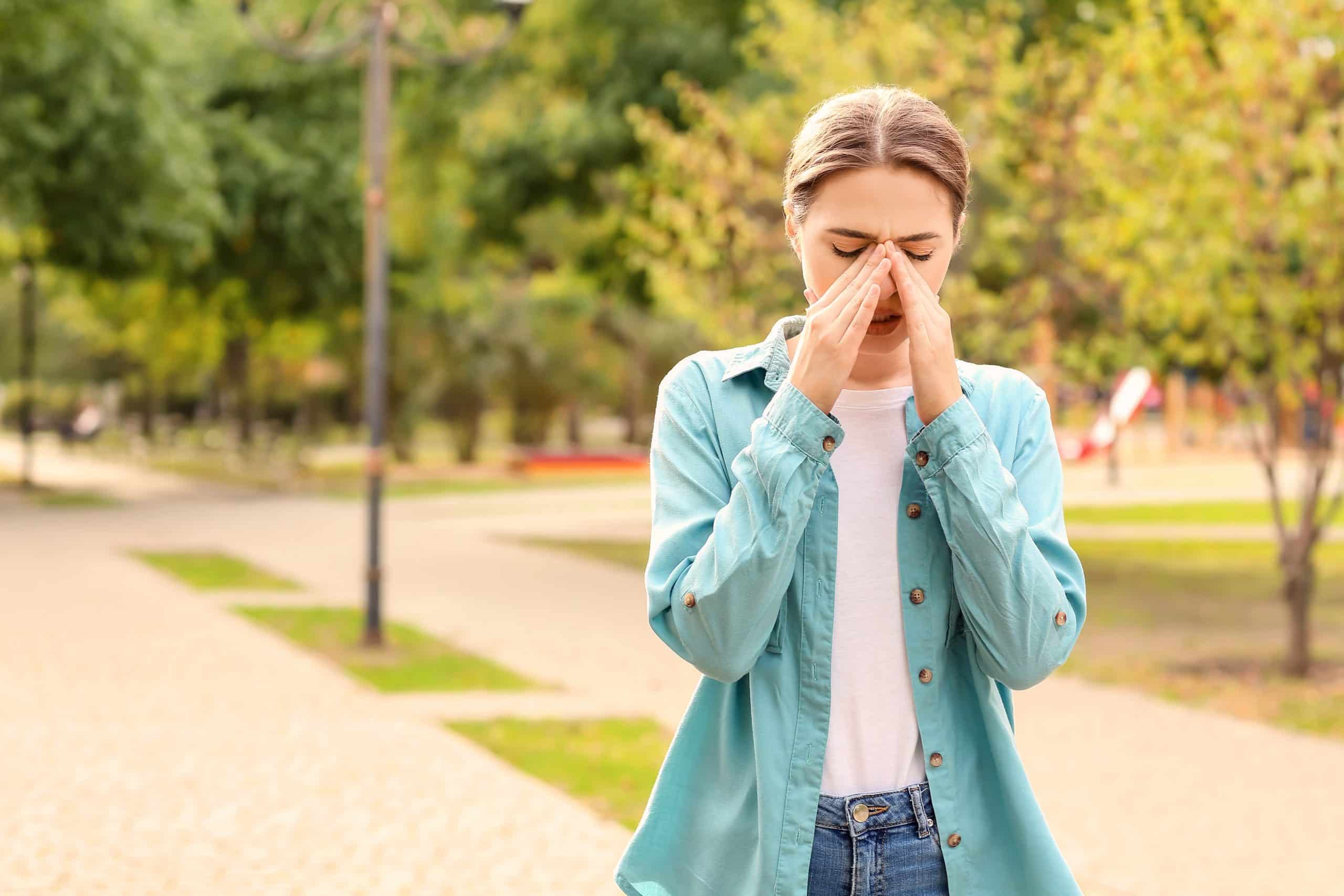Identifying And Addressing Allergens That Can Trigger Autoimmune Symptoms
Autoimmune diseases are on the rise, affecting millions of people worldwide so it is important to understand what can trigger autoimmune symptoms. These conditions occur when the immune system mistakenly attacks healthy cells and tissues in the body. While genetic factors play a role in autoimmune diseases, microbiome dysfunction and environmental triggers like allergens also contribute to their development.
Identifying and addressing these allergens is crucial for managing autoimmune diseases. Here are a few tips for identifying and addressing allergens that can trigger autoimmune symptoms.
What Can Trigger Autoimmune Symptoms – Keep A Symptom Journal And Get Tested For Allergies
Start by keeping track of your symptoms and potential triggers in a journal. This will help you identify patterns and pinpoint potential allergens. Consult with an allergist to get tested for common allergies, such as food allergies, environmental allergies, and sensitivities. This will give you a better understanding of what causes your symptoms.
What Can Trigger Autoimmune Symptoms – Pay Attention To Your Diet
Certain foods can trigger autoimmune symptoms in some individuals. Common allergens include gluten, dairy, sugar, nightshades, soy, and eggs. Keeping a food diary and eliminating potential toxins from your diet can help identify if certain foods are exacerbating your symptoms.
Gluten is a protein found in wheat, barley, and rye. It is commonly associated with celiac disease, an autoimmune disorder where the body attacks itself in response to gluten consumption. However, even those without celiac disease may experience symptoms like joint pain, fatigue, and digestive issues when consuming gluten.1
Dairy products, such as milk and cheese, contain a protein called casein which can cause inflammation in the body. This can lead to joint pain, skin rashes, and digestive problems in individuals with autoimmune disorders.2
Consuming excessive amounts of sugar can cause inflammation in the body and weaken the immune system. This can exacerbate autoimmune symptoms and make it more difficult for the body to fight off other illnesses.3
Nightshades are a group of plants that include tomatoes, eggplants, and peppers. These vegetables contain compounds called alkaloids which can cause inflammation in some individuals with autoimmune disorders.4
Processed foods are often high in sugar, unhealthy fats, and preservatives which can all contribute to inflammation in the body. These foods can also disrupt the balance of healthy gut bacteria, which plays a crucial role in maintaining a strong immune system.5
Soy products, such as tofu and soy milk, contain high levels of phytoestrogens which can disrupt hormone balance and cause inflammation in some individuals.6
Eggs are a common allergen and can cause autoimmune symptoms in some individuals. This is due to a protein called albumin found in egg whites that can result in an immune response.7
Read more about a healthy diet.

What Can Trigger Autoimmune Symptoms – Be Mindful Of Your Environment
Environmental allergens like pollen, dust, and pet dander can also trigger autoimmune symptoms. Pay attention to your surroundings and try to minimize exposure to these allergens. Certain chemicals and toxins found in our environment can also contribute to autoimmune symptoms. These include pesticides, heavy metals, and other pollutants. It’s important to be aware of the products you use in your home and opt for natural or organic alternatives whenever possible.8 9
Read more about toxic chemicals that are linked to autoimmune conditions.

What Can Trigger Autoimmune Symptoms – Consider Air Purifiers And Filters
Investing in an air purifier or using filters on your HVAC system can help remove allergens from the air in your home. Many people suffer from allergies due to pollen, pet dander, and other environmental allergens. Investing in an air purifier or using filters on your HVAC system is a long-term solution that can greatly improve the quality of life for allergy sufferers.
Air purifiers use a series of filters to trap impurities. Some models even include UV-C light technology to kill bacteria and viruses in the air. This can greatly reduce the amount of allergens circulating in your home, providing relief from allergies.10 11 12
Investing in an air purifier or using filters on your HVAC system is not only beneficial for allergy sufferers, but it can also improve the air quality for everyone in your home. Poor indoor air quality can lead to respiratory issues and other health problems, so it is important to take steps to improve the air you breathe.
What Can Trigger Autoimmune Symptoms – Choose Natural Cleaning Products
Commercial cleaning products often contain harsh chemicals that can trigger autoimmune symptoms in sensitive individuals. Switching to natural, non-toxic cleaning products can help reduce these autoimmune symptoms.
Natural cleaning products use ingredients like vinegar, lemon juice, and essential oils to clean effectively without the use of harsh chemicals. These natural ingredients have been used for centuries and are gentler on the body and the environment.
In contrast, many commercial cleaning products contain synthetic fragrances, dyes, and preservatives that can irritate the skin, eyes, and respiratory system. These chemicals can also disrupt the body’s delicate balance and contribute to autoimmune conditions.13
Read more about toxins contained in cleaning products.

What Can Trigger Autoimmune Symptoms – Opt For Hypoallergenic Personal Care Products
Similar to cleaning products, personal care products like shampoos, lotions, and cosmetics can contain allergens that can exacerbate symptoms. Look for hypoallergenic options to minimize your exposure. Hypoallergenic products are formulated to be less likely to cause allergic reactions, making them ideal for those with autoimmune disorders.
Additionally, certain ingredients commonly found in personal care products such as parabens, sulfates, and fragrances can also trigger or worsen autoimmune symptoms. It’s important to carefully read labels and avoid these products.14 15 16
Natural or organic personal care products have fewer synthetic ingredients and harsh chemicals, reducing the likelihood of a reaction. Look for certifications like USDA Organic or Ecocert to ensure that the product is truly natural.
Furthermore, it’s important to be mindful of the type of packaging your personal care products come in. Plastics can contain harmful chemicals like BPA, which has been linked to autoimmune disorders. Look for products that come in glass or BPA-free packaging.17
In addition to the type of product, the way you apply personal care products can also make a difference. For example, using aerosol sprays can increase your exposure to irritants. Opting for pump or roll-on applicators may be a better choice for those with autoimmune disorders.
It’s also important to note that personal care products can have a cumulative effect on the body. Using multiple products with the same harmful ingredient can add up and lead to a reaction. It’s best to stick to one product line or brand to minimize your exposure.
Finally, it’s always a good idea to patch test any new personal care product before using it regularly. This can help identify any potential reactions and allow you to avoid a full-body flare-up. By being mindful of the personal care products you use, you can reduce your exposure to toxins and help manage your autoimmune symptoms.
Read more about toxins contained in cosmetics.
What Can Trigger Autoimmune Symptoms – Keep Your Home Clean, Dust-Free, And Mold-Free
Regularly cleaning and dusting your home can help reduce the presence of environmental allergens. Vacuuming regularly with a HEPA filter can help remove dust and pet dander from carpets and furniture. Dusting surfaces with a damp cloth rather than a dry one can also help trap and remove allergens. Additionally, keeping your home free of mold is crucial in managing autoimmune symptoms.18
Mold can trigger an immune response in people with autoimmune disorders, leading to respiratory issues and other health problems. To prevent the growth of mold in your home, make sure to fix any leaks or water damage promptly, especially in high-moisture areas such as bathrooms and basements. Use a dehumidifier in damp areas and regularly check for any signs of mold growth.19
Read more about mold toxicity.

What Can Trigger Autoimmune Symptoms – Practice Stress Management
Stress can have a negative impact on the immune system and exacerbate autoimmune symptoms. Finding ways to manage stress, such as through mindfulness practices, exercise, or therapy, can help improve overall health and reduce the severity of symptoms.20
What Can Trigger Autoimmune Symptoms
By implementing these tips and being mindful of potential allergens, individuals with autoimmune diseases can better manage their symptoms and improve their quality of life. Stay informed and proactive in identifying and addressing allergens to keep your autoimmune symptoms under control.
Read more about autoimmune conditions.
References
1 Leonard MM, Vasagar B. US perspective on gluten-related diseases. Clin Exp Gastroenterol. 2014 Jan 24;7:25-37. doi: 10.2147/CEG.S54567. PMID: 24493932; PMCID: PMC3908912.
2 Bordoni A, Danesi F, Dardevet D, Dupont D, Fernandez AS, Gille D, Nunes Dos Santos C, Pinto P, Re R, Rémond D, Shahar DR, Vergères G. Dairy products and inflammation: A review of the clinical evidence. Crit Rev Food Sci Nutr. 2017 Aug 13;57(12):2497-2525. doi: 10.1080/10408398.2014.967385. PMID: 26287637.
3 Muniz AKOA, Vianna EO, Padilha LL, Nascimento JXPT, Batista RFL, Barbieri MA, Bettiol H, Ribeiro CCC. Sugar-Sweetened Beverages and Allergy Traits at Second Year of Life: BRISA Cohort Study. Nutrients. 2023 Jul 20;15(14):3218. doi: 10.3390/nu15143218. PMID: 37513636; PMCID: PMC10383806.
4 Kuang R, Levinthal DJ, Ghaffari AA, Del Aguila de Rivers CR, Tansel A, Binion DG. Nightshade Vegetables: A Dietary Trigger for Worsening Inflammatory Bowel Disease and Irritable Bowel Syndrome? Dig Dis Sci. 2023 Jul;68(7):2853-2860. doi: 10.1007/s10620-023-07955-9. Epub 2023 May 19. PMID: 37202602.
5 Sathe SK, Sharma GM. Effects of food processing on food allergens. Mol Nutr Food Res. 2009 Aug;53(8):970-8. doi: 10.1002/mnfr.200800194. PMID: 19603400.
6 Jarmila C, Květuše E, Karel E, Jaroslava V, Josef B. Soy allergy in patients suffering from atopic dermatitis. Indian J Dermatol. 2013 Jul;58(4):325. doi: 10.4103/0019-5154.113938. PMID: 23919016; PMCID: PMC3726893.
7 Mathew P, Pfleghaar JL. Egg Allergy. [Updated 2023 Jul 4]. In: StatPearls [Internet]. Treasure Island (FL): StatPearls Publishing; 2023 Jan-. Available from: https://www.ncbi.nlm.nih.gov/books/NBK538192/
8 Rodrigues MB, Carvalho DS, Chong-Silva DC, Urrutia-Pereira M, Albuquerque GSC, Cieslak F, Chong-Neto HJ. Association between exposure to pesticides and allergic diseases in children and adolescents: a systematic review with meta-analysis. J Pediatr (Rio J). 2022 Nov-Dec;98(6):551-564. doi: 10.1016/j.jped.2021.10.007. Epub 2022 Jan 1. PMID: 34982974; PMCID: PMC9617275.
9 Witkowska D, Słowik J, Chilicka K. Heavy Metals and Human Health: Possible Exposure Pathways and the Competition for Protein Binding Sites. Molecules. 2021 Oct 7;26(19):6060. doi: 10.3390/molecules26196060. PMID: 34641604; PMCID: PMC8511997.
10 Raju S, Siddharthan T, McCormack MC. Indoor Air Pollution and Respiratory Health. Clin Chest Med. 2020 Dec;41(4):825-843. doi: 10.1016/j.ccm.2020.08.014. PMID: 33153698; PMCID: PMC7665158.
11 Schmidt CW. Pollen Overload: Seasonal Allergies in a Changing Climate. Environ Health Perspect. 2016 Apr;124(4):A70-5. doi: 10.1289/ehp.124-A70. PMID: 27035881; PMCID: PMC4829390.
12 Shargorodsky J, Garcia-Esquinas E, Umanskiy R, Navas-Acien A, Lin SY. Household pet exposure, allergic sensitization, and rhinitis in the U.S. population. Int Forum Allergy Rhinol. 2017 Jul;7(7):645-651. doi: 10.1002/alr.21929. Epub 2017 May 25. PMID: 28544629.
13 Liu X, Tan L, Yu ITS, Zhang Z, Wong CC, Guo C, Ho KF, Lau APS, Yeoh EK, Lee A, Lao XQ. Household cleaning products and the risk of allergic dermatitis: a prospective cohort study with primary-school children. J Eur Acad Dermatol Venereol. 2018 Apr;32(4):624-631. doi: 10.1111/jdv.14680. Epub 2017 Nov 28. PMID: 29114947.
14 Hafeez F, Maibach H. An overview of parabens and allergic contact dermatitis. Skin Therapy Lett. 2013 Jul-Aug;18(5):5-7. PMID: 24305662.
15 Vally H, Misso NL. Adverse reactions to the sulphite additives. Gastroenterol Hepatol Bed Bench. 2012 Winter;5(1):16-23. PMID: 24834193; PMCID: PMC4017440.
16 Pastor-Nieto MA, Gatica-Ortega ME. Ubiquity, Hazardous Effects, and Risk Assessment of Fragrances in Consumer Products. Curr Treat Options Allergy. 2021;8(1):21-41. doi: 10.1007/s40521-020-00275-7. Epub 2021 Jan 23. PMID: 33520600; PMCID: PMC7825391.
17 Robinson L, Miller R. The Impact of Bisphenol A and Phthalates on Allergy, Asthma, and Immune Function: a Review of Latest Findings. Curr Environ Health Rep. 2015 Dec;2(4):379-87. doi: 10.1007/s40572-015-0066-8. PMID: 26337065; PMCID: PMC4626318.
18 Sublett JL. Effectiveness of air filters and air cleaners in allergic respiratory diseases: a review of the recent literature. Curr Allergy Asthma Rep. 2011 Oct;11(5):395-402. doi: 10.1007/s11882-011-0208-5. PMID: 21773748; PMCID: PMC3165134.
19 Mendell MJ, Mirer AG, Cheung K, Tong M, Douwes J. Respiratory and allergic health effects of dampness, mold, and dampness-related agents: a review of the epidemiologic evidence. Environ Health Perspect. 2011 Jun;119(6):748-56. doi: 10.1289/ehp.1002410. Epub 2011 Jan 26. PMID: 21269928; PMCID: PMC3114807.
20 Montoro J, Mullol J, Jáuregui I, Dávila I, Ferrer M, Bartra J, del Cuvillo A, Sastre J, Valero A. Stress and allergy. J Investig Allergol Clin Immunol. 2009;19 Suppl 1:40-7. PMID: 19476053.




